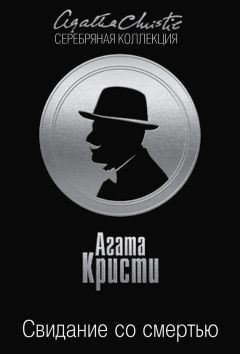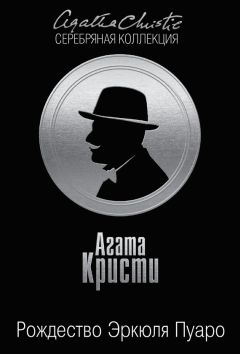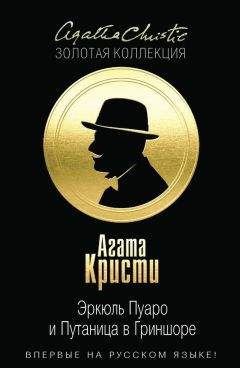Arthur Conan Doyle - Английский язык с Шерлоком Холмсом. Собака Баскервилей
"You know it well, then (значит, вы хорошо их знаете)?"
"I have only been here two years (я здесь всего два года). The residents would call me a new-comer (старожилы называют меня приезжим/новичком). We came shortly after Sir Charles settled (мы приехали вскоре после /того, как здесь/ поселился сэр Чарльз). But my tastes led me to explore every part of the country round (но мои наклонности побудили меня исследовать каждое местечко в округе; taste — вкус; пристрастие; to lead — вести; влиять, убеждать), and I should think that there are few men (и я думаю, что есть очень мало людей) who know it better than I do (кто знает /эти места/ лучше меня)."
"Is it so hard to know (их так трудно узнать)?"
"Very hard (очень трудно). You see, for example, this great plain to the north here (видите, к примеру, ту широкую равнину к северу отсюда), with the queer hills breaking out of it (с причудливыми холмами, возвышающимися над ней; to break out — вырываться). Do you observe anything remarkable about that (видите в ней что-нибудь необычное; to observe — наблюдать; remarkable — замечательный; to remark — замечать, наблюдать, обнаруживать, отмечать, подмечать)?"
"It would be a rare place for a gallop (она была бы на редкость /удобным/ местом для конной прогулки; to gallop — скакать галопом)."
"You would naturally think so (/это/ естественно, /что/ вы так считаете), and the thought has cost folk their lives before now (и эта мысль стоила уже /многим/ людям жизни; before now — раньше: «до ныне/шнего времени/»). You notice those bright green spots scattered thickly over it (вы видите: «замечаете» те ярко-зеленые пятна, густо усыпавшие ее; to scatter — разбрасывать; усыпать)?"
"Yes, they seem more fertile than the rest (да, /земля там/ кажется более плодородной, чем в остальных /местах/)."
resident [ˈrezɪd(ǝ)nt], explore [ɪksˈplɔ:], gallop [ˈɡælǝp]
"You know it well, then?"
"I have only been here two years. The residents would call me a new-comer. We came shortly after Sir Charles settled. But my tastes led me to explore every part of the country round, and I should think that there are few men who know it better than I do."
"Is it so hard to know?"
"Very hard. You see, for example, this great plain to the north here, with the queer hills breaking out of it. Do you observe anything remarkable about that?"
"It would be a rare place for a gallop."
"You would naturally think so, and the thought has cost folk their lives before now. You notice those bright green spots scattered thickly over it?"
"Yes, they seem more fertile than the rest."
Stapleton laughed (Стэплтон рассмеялся).
"That is the great Grimpen Mire (это большая Гримпенская трясина)," said he. "A false step yonder means death to man or beast (один неверный шаг вон там означает смерть для человека или для животного). Only yesterday I saw one of the moor ponies wander into it (только вчера я видел, как пони /какого-то фермера/ забрел туда; to wander — бродить). He never came out (он не /смог/ выбраться). I saw his head for quite a long time craning out of the bog-hole (я видел, как его голова довольно долгое время высовывалась из трясины; to crane — вытягивать шею; hole — дыра; впадина), but it sucked him down at last (но наконец она его засосала). Even in dry seasons it is a danger to cross it (даже в засушливое время года переходить через нее опасно), but after these autumn rains it is an awful place (но после дождей этой осенью это /просто/ ужасное место). And yet I can find my way to the very heart of it (тем не менее, я могу найти дорогу к самому сердцу ее) and return alive (и вернуться живым). By George, there is another of those miserable ponies (Боже мой, еще один несчастный пони; by George — клянусь святым Георгием)!"
Something brown was rolling and tossing among the green sedges (что-то коричневое барахталось и металось в зеленой осоке; to roll — катиться, перекатываться; to toss — бросать). Then a long, agonized, writhing neck shot upwards (затем на мгновение появилась длинная, в отчаянии вытянутая шея; agonized — мучительный; отчаянный; writhing — змеевидный; извивающийся; to shoot — стрелять; пронестись, промелькнуть) and a dreadful cry echoed over the moor (и страшный крик эхом отразился на болотах). It turned me cold with horror (я похолодел от ужаса; to turn — поворачиваться; делаться, становиться), but my companion's nerves seemed to be stronger than mine (но нервы моего спутника, по-видимому, были крепче моих).
wander [ˈwɔndǝ], autumn [ˈɔ:tǝm], agonize [ˈæɡǝnaɪz]
Stapleton laughed.
"That is the great Grimpen Mire," said he. "A false step yonder means death to man or beast. Only yesterday I saw one of the moor ponies wander into it. He never came out. I saw his head for quite a long time craning out of the bog-hole, but it sucked him down at last. Even in dry seasons it is a danger to cross it, but after these autumn rains it is an awful place. And yet I can find my way to the very heart of it and return alive. By George, there is another of those miserable ponies!"
Something brown was rolling and tossing among the green sedges. Then a long, agonized, writhing neck shot upwards and a dreadful cry echoed over the moor. It turned me cold with horror, but my companion's nerves seemed to be stronger than mine.
"It's gone!" said he (все кончено, — сказал он). "The Mire has him (трясина взяла свое; to have — иметь; получать). Two in two days, and many more, perhaps (два за два дня, а, возможно, и много больше), for they get in the way of going there in the dry weather (потому что они привыкают ходить туда в сухую погоду), and never know the difference (и не понимают разницы) until the Mire has them in its clutch (пока не попадут в лапы трясины; clutch — захват; clutches — когти, лапы). It's a bad place, the great Grimpen Mire (скверное место, эта большая Гримпенская трясина)."
"And you say you can penetrate it (и вы говорите, что можете пройти через нее; to penetrate — проникать)?"
"Yes, there are one or two paths (да, есть одна-две тропки) which a very active man can take (по которым умелый человек может пройти; active — активный, живой). I have found them out (я их нашел)."
"But why should you wish to go into so horrible a place (но почему вам хочется ходить в такое жуткое место)?"
"Well, you see the hills beyond (ну, видите те холмы за /ней/)? They are really islands cut off on all sides by the impassable Mire (это настоящие островки, со всех сторон отрезанные непроходимой трясиной; to pass — проходить, миновать), which has crawled round them in the course of years (которая на протяжении /многих/ лет окружала их; to crawl — ползти). That is where the rare plants and the butterflies are (вот где /водятся/ редкие растения и бабочки), if you have the wit to reach them (если у вас хватает ума до них добраться; wit — ум, остроумие)."
"I shall try my luck some day (я как-нибудь попытаю счастья)."
weather [ˈweðǝ], impassable [ɪmˈpɑ:sǝbl], luck [lʌk]
"It's gone!" said he. "The Mire has him. Two in two days, and many more, perhaps, for they get in the way of going there in the dry weather, and never know the difference until the Mire has them in its clutch. It's a bad place, the great Grimpen Mire."
"And you say you can penetrate it?"
"Yes, there are one or two paths which a very active man can take. I have found them out."
"But why should you wish to go into so horrible a place?"
"Well, you see the hills beyond? They are really islands cut off on all sides by the impassable Mire, which has crawled round them in the course of years. That is where the rare plants and the butterflies are, if you have the wit to reach them."
"I shall try my luck some day."
He looked at me with a surprised face (он посмотрел на меня с удивлением: «с удивленным лицом»).
"For God's sake put such an idea out of your mind (ради Бога, выбросьте эту мысль из головы; to put out — выгонять; удалять)," said he. "Your blood would be upon my head (ваша смерть: «кровь» будет на мой совести: «голове»). I assure you (уверяю вас) that there would not be the least chance (что не было бы ни малейшего шанса) of your coming back alive (на ваше возвращение живым). It is only by remembering certain complex landmarks (только помня определенную сложную /последовательность/ ориентиров; complex — сложный, запутанный) that I am able to do it (я способен совершить это)."
"Halloa!" I cried. "What is that (эй, — закричал я, — что это)?"
A long, low moan, indescribably sad (протяжный, низкий стон, неописуемо тоскливый), swept over the moor (разнесся над болотами; to sweep — подметать; мчаться, нестись). It filled the whole air (им наполнился воздух; whole — весь), and yet it was impossible to say whence it came (и все же невозможно было определить: «сказать», откуда он шел). From a dull murmur it swelled into a deep roar (из неясного ропота он усилился до глухого рева; to swell — опухать; нарастать /о звуке/; deep — глубокий; низкий, глухой /о звуке/), and then sank back into a melancholy, throbbing murmur once again (а затем снова перешел в скорбное беспокойное бормотание; to sink — тонуть; ослабевать). Stapleton looked at me with a curious expression in his face (Стэплтон как-то странно: «со странным выражением на лице» взглянул на меня; curious — любопытный; странный, чудной).
head [hed], murmur [ˈmǝ:mǝ], roar [rɔ:]
He looked at me with a surprised face.
"For God's sake put such an idea out of your mind," said he. "Your blood would be upon my head. I assure you that there would not be the least chance of your coming back alive. It is only by remembering certain complex landmarks that I am able to do it."
"Halloa!" I cried. "What is that?"
A long, low moan, indescribably sad, swept over the moor. It filled the whole air, and yet it was impossible to say whence it came. From a dull murmur it swelled into a deep roar, and then sank back into a melancholy, throbbing murmur once again. Stapleton looked at me with a curious expression in his face.
"Queer place, the moor (странное место, эти болота)!" said he.
"But what is it (но что это такое)?"
"The peasants say it is the Hound of the Baskervilles calling for its prey (местные жители говорят, что так собака Баскервилей зовет свою жертву; peasant — крестьянин; сельский житель). I've heard it once or twice before (я слышал это и раньше раз или два), but never quite so loud (но так громко — никогда)."
I looked round, with a chill of fear in my heart (я оглядел с замирающим от страха сердцем; chill — холод; гнетущее чувство), at the huge swelling plain (огромную величественную равнину), mottled with the green patches of rushes (покрытую зелеными участками камыша). Nothing stirred over the vast expanse (ничто не шевелилось = никакого движения не было на этом безбрежном просторе) save a pair of ravens, which croaked loudly from a tor behind us (кроме пары воронов, громко каркающих с вершины скалы позади нас).




